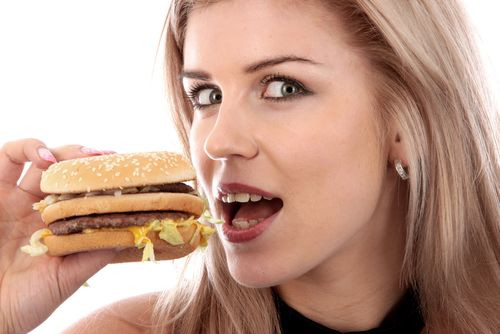Why McDonald's Food Doesn't Break Down, According To The Company

People often question the famous McDonald's burger — is it even real food? If it is, how come it doesn’t rot or expire? Some have even done their own personal experiments leaving McDonald’s uneaten and out for days and then coming back to see the results — a seemingly untouched or changed burger.
So McDonald’s decided to put to rest these theories and answer their customers frequently asked questions such as, “Why doesn’t your food rot?”
McDonald's answered on its website: “The short answer is that our burgers do rot under the right conditions, but we can see why there's some confusion out there.”
The fast-food chain reached out to a Canadian food scientist, Dr. Keith Warriner, to explain the process.
“There have been a lot of online videos and photos touting the fact that when left out for an extended period of time, a McDonald’s hamburger does not rot and that this is because they are laden with chemicals,” Warriner said. “The reality is that McDonald’s hamburgers, French fries and chicken are like all foods, and do rot if kept under certain conditions.”
He says that a large part of the rotting process is the same as any other types of foods. "Essentially, the microbes that cause rotting are a lot like ourselves in that they need water, nutrients, warmth and time to grow. If we take one or more of these elements away, then microbes cannot grow or spoil food," he added.
The most controversial food is the so-called hamburger, which is basically a brown piece of seemingly unidentifiable meat sandwiched between pieces of white bread.
"The patty loses water in the form of steam during the cooking process. The bun, of course, is made out of bread. Toasting it reduces the amount of moisture. This means that after preparation, the hamburger is fairly dry,” Warriner explained. “When left out open in the room, there is further water loss as the humidity within most buildings is around 40%. So in the absence of moisture or high humidity, the hamburger simply dries out, rather than rot.”
Warriner explains that by taking out moisture, microbes are not able to grow and spoil the food. “If you try doing the same experiment with a homemade burger with similar moisture content as a McDonald’s hamburger and under similar conditions, you’ll probably get the same results.”
This might be one explanation, but McDonald’s burgers also have a lot of preservatives to prevent the growth of microbes. The company did say that they’re trying to make a switch to a healthier menu, but for now, many people still consume their burgers — 75 hamburgers per second to be exact.
Published by Medicaldaily.com



























